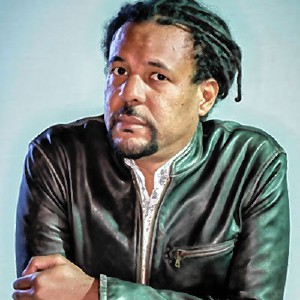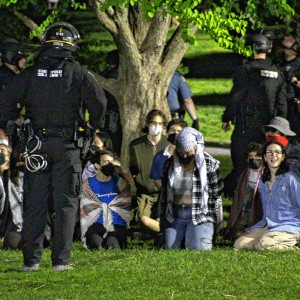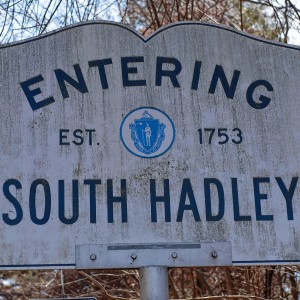Editorial: Hampshire must lead dialogue after flag removed
| Published: 11-30-2016 9:25 PM |
National attention is focused on Hampshire College, a private institution that finds itself at the crossroads of a debate that erupted after it temporarily stopped flying the American flag at the heart of its South Amherst campus.
While the controversy centers on the symbolic removal of one flag a week after another was found burned at that location on Veterans Day, the debate encompasses fundamental American values including free speech, inclusiveness and respect for differing views.
The passionate and at times heated reactions include a campus community debating whether the flag should continue to fly as its symbolism is explored; a protest by hundreds at the college’s entrance Sunday organized by veterans who assert that Hampshire’s decision disrespects Americans who view the flag as a symbol of freedom; and a tweet by president-elect Donald Trump on Tuesday suggesting that flag-burners should lose their citizenship or be jailed, despite the fact that their expression is protected by the U.S. Constitution.
Emotions run raw as the country struggles to recover from a divisive presidential campaign that ended in Trump’s election. The result has left some questioning whether all Americans will continue to feel respected and safe in a nation founded with the declaration that among “certain unalienable rights” are “life, liberty and the pursuit of happiness.”
Hampshire College President Jonathan Lash explained the Nov. 18 decision to take down the flag for an unspecified period of time by saying, “From some in our community we heard that (the flag) means never feeling safe. From others we understood the flag to be a symbol of the highest aspirations for the country.” Removing it, he said then, would allow for a campus-wide dialogue without the “heated symbol that was making conversations on campus this month impossible.”
While some might disagree with that choice, it was a reasonable one. The college, whose principles include promoting social justice and positive change in the world, now must open that dialogue to all who want to participate, including those from off campus and those who sharply disagree. Hampshire should seize the opportunity to lead a far-ranging conversation that extends from an understanding of how that red, white and blue cloth gives rise to so many different reactions, to exploring the direction of the country as it prepares for Trump’s presidency.
We hope that process is guided by civil discourse rather than further ludicrous tweets from afar, extreme acts closer to home or insularity from college officials who seem unsure how to deal with a spotlight they surely could have expected.
A reasonable tone should begin at the top. Whether or not Trump was alluding to the incident at Hampshire (there have been other flag-burnings since his election), it is troubling that the president-elect either disregards or is ignorant about the 26-year-old Supreme Court ruling protecting flag-burning as “symbolic speech” under the First Amendment.
Article continues after...
Yesterday's Most Read Articles
 UMass graduation speaker Colson Whitehead pulls out over quashed campus protest
UMass graduation speaker Colson Whitehead pulls out over quashed campus protest
 ‘Knitting treasure’ of the Valley: Northampton Wools owner spreads passion for ancient pastime
‘Knitting treasure’ of the Valley: Northampton Wools owner spreads passion for ancient pastime
 More than 130 arrested at pro-Palestinian protest at UMass
More than 130 arrested at pro-Palestinian protest at UMass
 UMass student group declares no confidence in chancellor
UMass student group declares no confidence in chancellor
 South Hadley Town Meeting OK’s budget that lays off 24 school staff; nuisance bylaw tabled
South Hadley Town Meeting OK’s budget that lays off 24 school staff; nuisance bylaw tabled
 Host of road projects to begin Friday in Amherst
Host of road projects to begin Friday in Amherst
Though that act is protected, Hampshire should continue its investigation to identify and punish those responsible for destroying college property in the flag-burning that was discovered Nov. 11 — which, according to a statement by the board of trustees the following day, led to reactions from “students, faculty, and staff, as well as members of the broader community, who were offended by the flag’s destruction — especially on Veterans Day.’’
There’s a world of difference between such midnight vandalism and the courageous free expression that happens in the light of day.
While Sunday’s protest was largely peaceful, it is regrettable that some in the crowd attempted to interfere with people documenting the scene by draping flags in front of their cameras, and in one instance threatening a Gazette photographer with vile language. Such behavior is precisely the opposite of the principles of free expression and tolerance on which this nation — and its flag — are founded.
Public officials who were present Sunday should condemn that behavior and urge that it not be repeated. A second rally at Hampshire is being organized by the Veterans Advocacy Services of Groton for noon this Sunday.
Lash reported that he had a “productive and respectful conversation” with leaders of the Veterans of Foreign Wars Post 754 of Amherst before last Sunday’s demonstration, which that group helped organize. We hope that Lash now invites representatives from among those bearing flags at Hampshire’s edge to enter the campus and engage with students and educators in the dialogue the president aims to make “a learning opportunity by giving voice to the range of viewpoints on campus across cultures, and, we hope, find common ground.”
We hope that leads to Hampshire again flying its flag — recognizing that while it will always be a powerful symbol for many, it will never mean the same thing for all. And that, in the United States of America, is precisely the point.

 Guest columnist David Narkewicz: Fiscal Stability Plan beats school budget overreach
Guest columnist David Narkewicz: Fiscal Stability Plan beats school budget overreach Columnist Bill Newman: Laurels and the laureate
Columnist Bill Newman: Laurels and the laureate  Rebecca Lee: Counter corporate capture
Rebecca Lee: Counter corporate capture Jim Reis: Northampton school budget — What went wrong?
Jim Reis: Northampton school budget — What went wrong?
